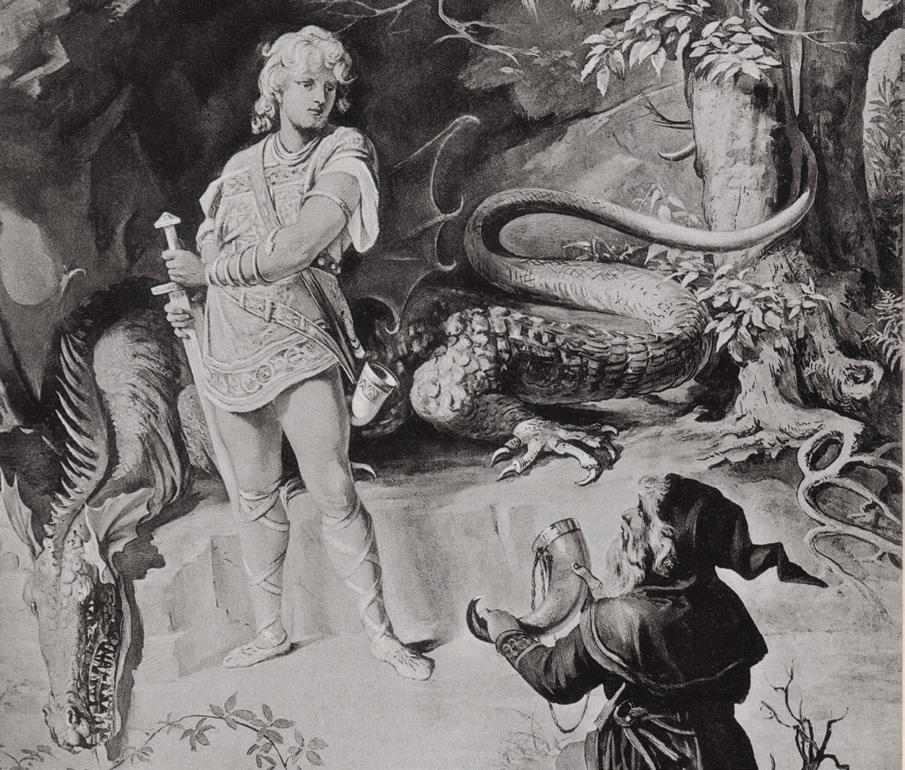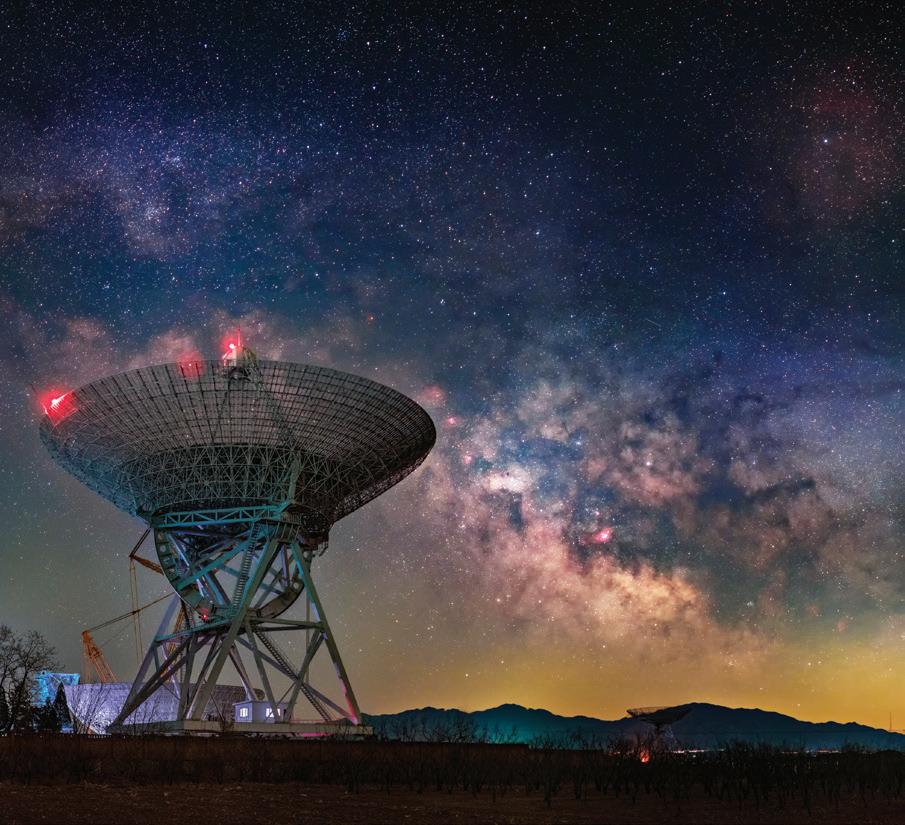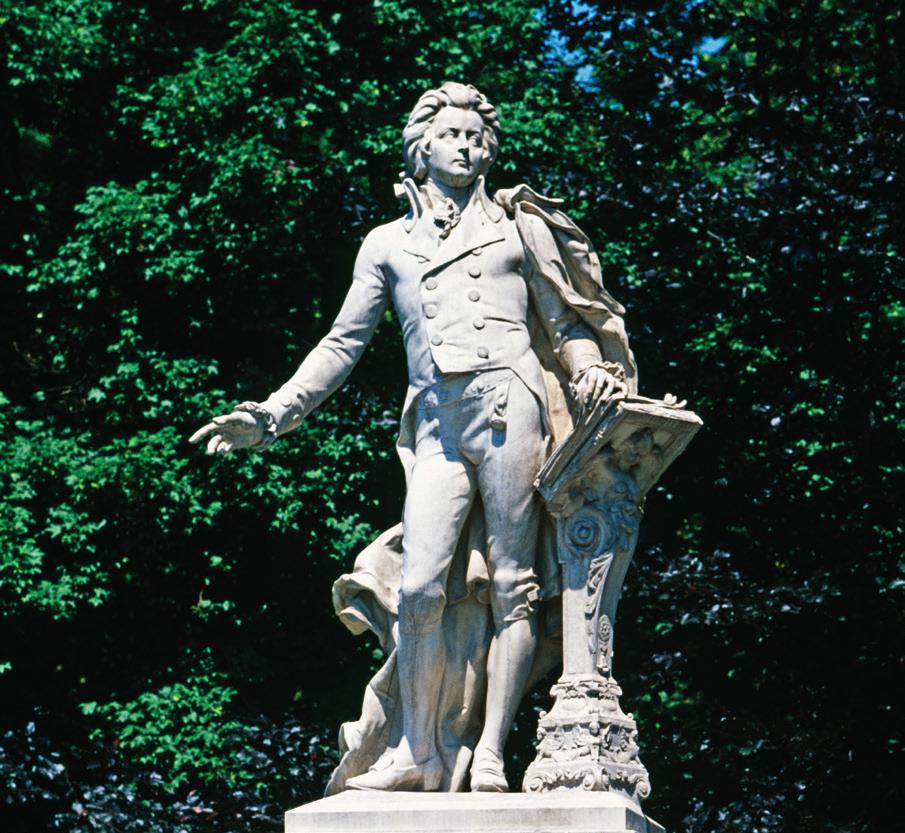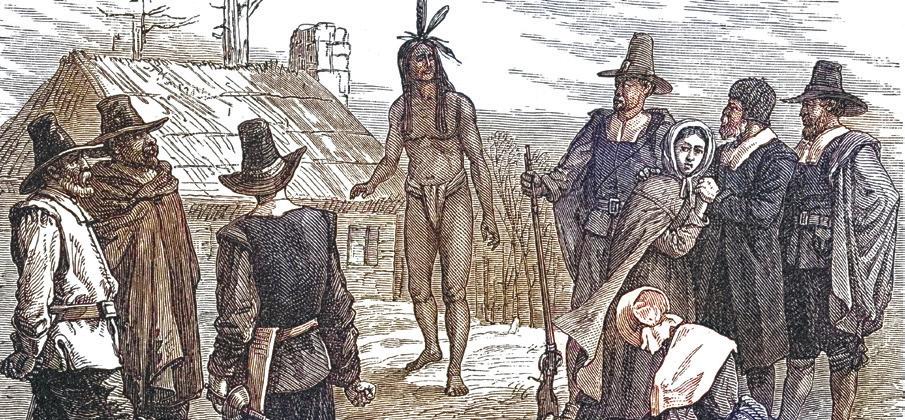
16 minute read
LECTURE COURSES
SUMMER 2022 SCHEDULE
Lecture courses are taught by the high-caliber instructors and guest speakers for which UCLA is world-renowned. OLLI membership is required to enroll in these courses.
Classical Music Masterpieces in Films, Part I {New Course}
Classical music has been an integral part of the medium of film since the very beginning, even during the silent film years. This is partly because most of the individuals in charge of providing music were classically trained musicians. But more so, it is because select compositions, having acquired a status of masterpiece over the decades and centuries, carry a cultural significance for viewers and thus enrich films with added layers of meaning and complexity. In this course, we focus on select films with plots that prominently display famous composers and performers. We learn about the compositions used in specific scenes, what their original context was, and how they were synced to film in order to help create a meaningful narrative. We view films as well-known as Amadeus, as little known as Tous les Matins du Monde, and everything in between. REG# 386771 | INSTRUCTOR: Anahit Rostomyan DATE/TIME: 8 Tuesdays, June 21-August 9, 10am-12pm
BASIC MEMBER FEE: $135 | PLUS MEMBER FEE: $40 WESTWOOD: UCLA Extension Gayley Center, 1145 Gayley Ave, Room 114
Biography of Europe, Part Two: Profiles from the European Reformation, 1517-1648 {New Course}
The Protestant Reformation was a religious reform movement that resulted in the creation of a branch of Christianity called Protestantism, a name used collectively to refer to the many religious groups that separated from the Roman Catholic Church due to differences in doctrine. In this course, we examine many of the key individuals and events that shaped the Reformation era from 1517 to 1648. Each week we present a biographical sketch of a key figure with substantial focus on the context in which the person lived and acted. These key figures include Martin Luther, King Henry VIII of England, John Calvin, Queen Catherine de Medici, Cardinal Richelieu, and Emperor Ferdinand II of the Holy Roman Empire. Key events include the rise of Lutheranism, Henry VIII's dissolution of the monasteries, the Saint Bartholomew's Day Massacre, and the Thirty Years War. REG# 386409 | INSTRUCTOR: Jared Day DATE/TIME: 5 Tuesdays, June 21-July 19, 1-3pm
BASIC MEMBER FEE: $105 | PLUS MEMBER FEE: $31 REMOTE COURSE: Zoom information is emailed to students two days before the course begins.
The Operas of Wagner {New Course}
The German composer, Richard Wagner, was one of the most important composers of the 19th century. He transformed western music, opera in particular, with lasting consequences to this day. This course explores one of the most extraordinary lives in history—an exiled revolutionary eventually taken under the wing of a king. We look at his vast output—the early operas as well as those united by characters found in Arthurian legend (Lohengrin, Parsifal, and Tristan and Isolde), and the four operas of Wagner’s magnum opus, Der Ring des Nibelungen (aka the Ring Cycle), a work that took 26 years to write, designed to galvanize the German people but which now inspires people the whole world over. Wagner elicits extreme reactions but those who love him do so with a passion that few other artists inspire. This course will be recorded. Students will have access to videos for the duration of the course.
REG# 386485 | INSTRUCTOR: Gordon Williams DATE/TIME: 8 Tuesdays, June 21-August 9, 6:30-8:30pm
BASIC MEMBER FEE: $135 | PLUS MEMBER FEE: $40 REMOTE COURSE: Zoom information is emailed to students two days before the course begins.
According to the FBI, mass shootings have tripled in frequency in recent years and have become epidemic during the COVID-19 pandemic. In the last four decades, more than three quarters of the guns used by killers were obtained legally, and more than half of the cases took place at a school or workplace. In this course, we review the common psychological characteristics of shooters, gun rights issues, how the legal system manages the obvious mental health data, and law enforcement response. We review two mass shootings in detail: the Stoneman Douglas High School shooting and the Orlando Nightclub massacre; as well as two recent mass shootings as time allows: the Boulder Colorado shooting at King Soopers grocery store and the Massage Parlor shooting spree in Georgia. This course will be recorded. Students will have access to videos for the duration of the course.
REG# 386395 | INSTRUCTOR: John Snibbe DATE/TIME: 3 Wednesdays, June 22-July 13 (no meeting June 29), 10am-12pm.
BASIC MEMBER FEE: $95 | PLUS MEMBER FEE: $28 REMOTE COURSE: Zoom information is emailed to students two days before the course begins.
Islam 101: A Primer
An inquiry into the basic tenets of Islam, the fastest-growing religion in the world today. Readings and discussion are based on established academic, scholarly principles, which systematically and objectively analyze the doctrines and practices of world religions. Such inquiry and discussion, it is hoped, will clarify and elucidate core beliefs and lead to a deeper nuanced understanding and appreciation of this major world religion, rather than the often biased and over-wrought reports and “analyses” presented in media. Suggested books include: John Sabini's Islam: A Primer, a highly respected volume that has effectively introduced students and U.S. diplomats to Islam for years, and Reza Aslan's No god but God: The Origins, Evolution, and Future of Islam. The instructor shares his PowerPoint presentations with students at the end of each major section of the course. REG# 386120 | INSTRUCTOR: Carlo Coppola DATE/TIME: 8 Wednesdays, June 22-August 10, 1-3pm
BASIC MEMBER FEE: $135 | PLUS MEMBER FEE: $40 REMOTE COURSE: Zoom information is emailed to students two days before the course begins.
Known as the Baroque, the art of the 17th century emerged in Italy out of the Catholic Counter-Reformation but spread throughout Europe and England. Dynamic and dramatic, it varied and adapted with its geographic region and patronage. This course begins with the art cultivated by the Catholic Church in response to the Protestant Reformation. Headed by the sculpture and architecture of Bernini and the paintings of Caravaggio, they set the standards for revolution in style following the Renaissance. Fostered by absolute rulers, we see how this highly ornate style develops in Spain, France, and Flanders with the likes of Diego Velazquez, Hyacinthe Rigaud, and Peter Paul Rubens; and how it presents itself differently with the open market of the Netherlands. We end our Baroque journey in England with the architectural dominance of Sir Christopher Wren. This course will be recorded. Students will have access to videos for the duration of the course.
REG# 386766 | INSTRUCTOR: Katherine Zoraster DATE/TIME: 6 Wednesdays, June 22-July 27, 1-3pm
BASIC MEMBER FEE: $115 | PLUS MEMBER FEE: $34 REMOTE COURSE: Zoom information is emailed to students two days before the course begins.
Architectural Oddities: An Off-the-Beaten Path Look at Unconventional Architecture {New Course}
Architectural history follows a canon of both traditional and eclectic styles from ancient to contemporary times. But what happens when a mix of whimsy, eccentricity, humor—and sometimes the creator's genius—insert themselves into the mix? Occurring throughout time and in various parts of the world, these unconventional structures exist to serve the cultures they were created for, from ancient religious sites to modern car culture merriment. In this course, we explore a myriad variety of structures set against the backdrop of the societies in which they existed, the construction methods used, the patrons for whom these structures were constructed, and the notions of the builders and architects who created them. This course will be recorded. Students will have access to videos for the duration of the course.
REG# 386859 | INSTRUCTOR: Eleanor Schrader DATE/TIME: 6 Thursdays, June 23-July 28, 10am-12pm
BASIC MEMBER FEE: $115 | PLUS MEMBER FEE: $34 REMOTE COURSE: Zoom information is emailed to students two days before the course begins.

History and Collection of the Louvre
As what became one of the first public art collections following the French Revolution and the most visited art museums in the world, the Louvre has both a storied history and an incredible art collection. This course provides an overview of the history of the museum and how it came to be, as well as focusing on some of its most renowned works of art. Some highlights include the history of the French Academy, the Nike of Samothrace and Venus de Milo, the Oath of the Horatii and the Raft of the Medusa, and, of course, the Mona Lisa. This course will be recorded. Students will have access to videos for the duration of the course.
REG# 386767 | INSTRUCTOR: Katherine Zoraster DATE/TIME: 6 Thursdays, June 23-July 28, 1-3pm
BASIC MEMBER FEE: $115 | PLUS MEMBER FEE: $34 REMOTE COURSE: Zoom information is emailed to students two days before the course begins.
The linking of Kings and God(s) is older than the pyramids. But by the time Shakespeare's patron, King James I, proclaimed it in his book Basilikon Doron (1599), the so-called Divine Right of Kings had but 50 years to run in England. Indeed, questions of royal legitimacy had plagued the English throne since the War of the Roses began in 1455, and remained unsettled under the Tudor dynasty 1485-1603. Writing from the perspective of the late 16th century, William Shakespeare boldly explored questions of Divine Right, royal legitimacy, and absolutism with a keen eye toward the foibles and fantasies of pretenders to the throne. Then, in or about 1591—perhaps inspired by attending (or acting in) Christopher Marlowe's The Jew of Malta—the 27 year-old Shakespeare read Niccolo Machiavelli's The Prince, the masterpiece of Realpolitik, and his view of royalty altered forever. In this course, we sift for Machiavelli's influence in five of Shakespeare's greatest dramas: Richard II, Henry IV 1 & 2, Henry V, and Macbeth. This course will be recorded. Students will have access to videos for the duration of the course.
REG# 386117 | INSTRUCTOR: Steve Sohmer DATE/TIME: 6 Mondays, June 27-August 8 (no meeting July 4), 10am-12pm
BASIC MEMBER FEE: $115 | PLUS MEMBER FEE: $34 REMOTE COURSE: Zoom information is emailed to students two days before the course begins.
Buddhist Science Meets Western Science, Part 1: Physics & the True Nature of Reality {New Course}
Both Buddhism and Western science investigate and seek to describe the nature, properties, and mechanics of the real world/reality. Both employ the so-called scientific method, but do so using different technologies and vocabularies. Western science is based upon Newtonian and quantum physics models in analyzing the macro and subatomic worlds, which correlate to Buddhism’s teaching of the two truths: a truth of worldly convention and an ultimate truth. Western science says, “Atoms and elementary particles.” Buddhism says, “Aggregates and dharmas.” Western science says, “Uncertainty principle.” Buddhism says, “Impermanence.” Western Science says, “Relatively/space-time continuum.” Buddhism says, “Connectivity/non-duality.” And so forth. In this course we discuss both the common ground and the different perspectives of these investigative traditions by analyzing their Venn diagrams, and hopefully engender an engaged, respectful, and fun exchange of ideas. No specialized knowledge of physics or Buddhism required—and no math. REG# 386763 | INSTRUCTOR: Don Parris DATE/TIME: 4 Mondays, June 27-July 25 (no meeting July 4), 1-3pm
BASIC MEMBER FEE: $100 | PLUS MEMBER FEE: $30 REMOTE COURSE: Zoom information is emailed to students two days before the course begins.
Every year, major international film festivals receive more than 50,000 short movies; different in style, genre, production value, and cost. Regardless of their quality, they all share a similar fate—more than 99% of these submissions neither receive a theatrical release nor enjoy a profitable life outside the film festival circuit. Some short movies are accessible on the video-on-demand market, but there are no reviews that can help film lovers figure out which of them might be worth watching. This course addresses these issues by offering the rare and unique opportunity of viewing some of the best dramas, documentaries, comedies, and animated shorts carefully selected by a returning Osher instructor who spent the last few years attending short film festivals and directing one of his own. The result is an anthology of the best short movies, with each class meeting featuring an 80-minute compilation of shorts, preceded by a brief introduction and followed by a post-screening discussion. REG# 386404 | INSTRUCTOR: Alex Pirolini DATE/TIME: 6 Mondays, June 27-August 8 (no meeting July 4), 1-3:30pm
BASIC MEMBER FEE: $130 | PLUS MEMBER FEE: $39 WESTWOOD: UCLA Extension Gayley Center, 1145 Gayley Ave, Room 114
Funny Love: Movies That Make Us Laugh at Ourselves {New Course}
Some love stories are heartbreaking, others are hilarious. The shenanigans of being in love—anxiety, desperation, ambivalence, and sentimentality—enable us to see this powerful human emotion with a lighter heart. Featured in this course are Made for Each Other, starring real life lovers Joseph Bologna and Renee Taylor, Arthur (the delightful original) with Dudley Moore and Liza Minelli; The Goodbye Girl, with Richard Dreyfus and Marsha Mason at their best; The Princess Bride with Mandy Patinkin, Cary Elwes, Peter Falk, and too many others to mention; Tootsie, starring Dustin Hoffman, Jessica Lange, Bill Murray, and a star turn by director Sydney Pollack; and finally Nora Ephron’s classic, When Harry Met Sally, showcasing Billy Crystal, Meg Ryan, and the much-missed Carrie Fisher.
REG# 386481 | INSTRUCTOR: Brandy French DATE/TIME: 6 Fridays, July 1-August 5, 1-3:30pm
BASIC MEMBER FEE: $130 | PLUS MEMBER FEE: $39 WESTWOOD: UCLA Extension Gayley Center, 1145 Gayley Ave, Room 114

The Map of American Music
Jazz, Blues, Rock, Pop, Folk, Country, Hip-Hop, Rap and many more kinds of music all evolved in the U.S. Some of these genres have common roots stemming from geographic location, ethnic populations, personal history, wars, and immigration (by choice and not). They progressed along different paths but as they grew up they influenced one another, comingled, sometimes finding their common ground and giving rise to yet newer and different styles or genres. Through audio, video, commentary, demonstration, and personal recollection, this course looks at the map of American music through a wide-angle lens, connecting the dots of its musical history and development. This course will be recorded. Students will have access to videos for the duration of the course.
REG# 386356 | INSTRUCTOR: Andrew Muson DATE/TIME: 8 Tuesdays, July 5-August 30 (no meeting Aug. 2), 1-3:15pm
BASIC MEMBER FEE: $135 | PLUS MEMBER FEE: $40 REMOTE COURSE: Zoom information is emailed to students two days before the course begins.

Due to advances in technology, what we thought we knew about the fundamentals of cosmology, astronomy, and space exploration is evolving almost daily. In this course, we explore the latest concepts, news, and discoveries regarding multiverses, gravitational waves, black holes, neutron stars, exoplanets, and the beginning of our universe. We also follow the progress of NASA and ESA's missions to the moon, Mars, Europa, Jupiter's ice-covered moon, and much more. REG# 386121 | INSTRUCTOR: Shelley Bonus DATE/TIME: 8 Wednesdays, July 6-August 24, 6:30-8:30pm
BASIC MEMBER FEE: $135 | PLUS MEMBER FEE: $40 REMOTE COURSE: Zoom information is emailed to students two days before the course begins.

Mozart
Wolfgang Amadeus Mozart is probably the most famous prodigy in the history of classical music. As early as age five, he was already an accomplished performer on keyboard and violin and began composing music. His musical legacy, however, extends far beyond the mythos of these early years and he develops into one of the most important composers of the 18th century. This course surveys the works of Mozart in the context of his life and times and draws connections between his works and a variety of personal and cultural issues. This course will be recorded. Students will have access to videos for the duration of the course.
REG# 386447 | INSTRUCTOR: Ryan Shiotsuki DATE/TIME: 8 Fridays, July 15-September 2, 10am-12pm
BASIC MEMBER FEE: $135 | PLUS MEMBER FEE: $40 REMOTE COURSE: Zoom information is emailed to students two days before the course begins.
There is a long, storied history of music in England. From the earliest harmonic influences English folksong had on the European continent, to the music of John Dunstable, William Byrd, Thomas Tallis, and Henry Purcell, a growing tradition has flourished in the British Isles. However, for much of the period after Purcell, the most important composers of note were not from England at all. From Handel to Haydn, some of the most famous music heard by residents of Britain were by composers who did not live in England. After a long drought, a new wave of composers began to flourish at the turn of the 20th century. In this course, we explore some of the music of this period by Gustav Holst, Vaughan Williams, Edward Elgar, Benjamin Britten, and many others. This course will be recorded. Students will have access to videos for the duration of the course.
REG# 386635 | INSTRUCTOR: Ryan Shiotsuki DATE/TIME: 8 Fridays, July 15-September 2, 1-3pm
BASIC MEMBER FEE: $135 | PLUS MEMBER FEE: $40 REMOTE COURSE: Zoom information is emailed to students two days before the course begins.
Monty Python {New Course}
Monty Python has been a top comedy group worldwide for the past 50 years. Their sketch comedies include Liberty Bell marching, fish-slapping, silly-walking, chain mailwearing, bovine-flinging, Judean Peoples’ Fronting, Romans Go Homing, line on your left—one cross each-ing, lumberjacking, Russian firing squadding, spam spam spamming, Spanish Inquisitioning, Australian Bruce-ing, poofy judging, Stephen Hawkins-ing, BBC-playing, America-invading, Hollywood Bowling, Sydney Opera Housing, Albert Hall-ing, O2 Londoning, and not-the-Messiahs. In this course, we have fun with footage from their television show, Monty Python’s Flying Circus, as well as their films. Have a cup of caffeine, sit back, and don’t forget to leave spaces for audience laughter because there will be a lot of it. Nudge, nudge, say no more. This course will be recorded. Students will have access to videos for the duration of the course.
REG# 387135 | INSTRUCTOR: Martin Marshall DATE/TIME: 6 Wednesdays, July 27-August 31, 10am-12pm
BASIC MEMBER FEE: $115 | PLUS MEMBER FEE: $34 REMOTE COURSE: Zoom information is emailed to students two days before the course begins.

U.S. History, Part 1: Native and European Encounters in the 17th century {New Course}
The Spanish were among the first Europeans to explore the New World and the first to settle in what is now the United States. By 1650, however, England had established a dominant presence on the Atlantic coast with two colonies: Jamestown, Virginia (1607) and the Plymouth, Massachusetts colony (1620). In this course, we examine the fraught relations that emerged in Virginia and Massachusetts and how they contributed to the emergence of African American slavery and Americans’ distinct views of liberty, freedom, race, and class. REG# 386381 | INSTRUCTOR: Jared Day DATE/TIME: 4 Tuesdays, August 16-September 6, 1-3pm
BASIC MEMBER FEE: $100 | PLUS MEMBER FEE: $30 REMOTE COURSE: Zoom information is emailed to students two days before the course begins.
Billy Crystal {New Course}
Billy Crystal's career has spanned six decades, from his Catch A Rising Star days to Soap, All in The Family, Saturday Night Live, Princess Bride, When Harry Met Sally, City Slickers, Comic Relief, Hamlet, Mr. Saturday Night, The Muppet Show, Midnight Train to Moscow, 700 Sundays, Monsters, Inc., Untogether, and hosting the Oscars, among others. In this course, we examine Billy's life and humor in detail. Specifically, what parts are Billy, what parts are the character, what comedic techniques does Billy use, and when is he being serious? Prepare for some laughs and some moments when you won't be sure if you are laughing or crying. But mostly laughs. This course will be recorded. Students will have access to videos for the duration of the course.
REG# 387161 | INSTRUCTOR: Martin Marshall DATE/TIME: 4 Tuesdays, August 16-September 6, 10am-12pm
BASIC MEMBER FEE: $100 | PLUS MEMBER FEE: $30 REMOTE COURSE: Zoom information is emailed to students two days before the course begins.






